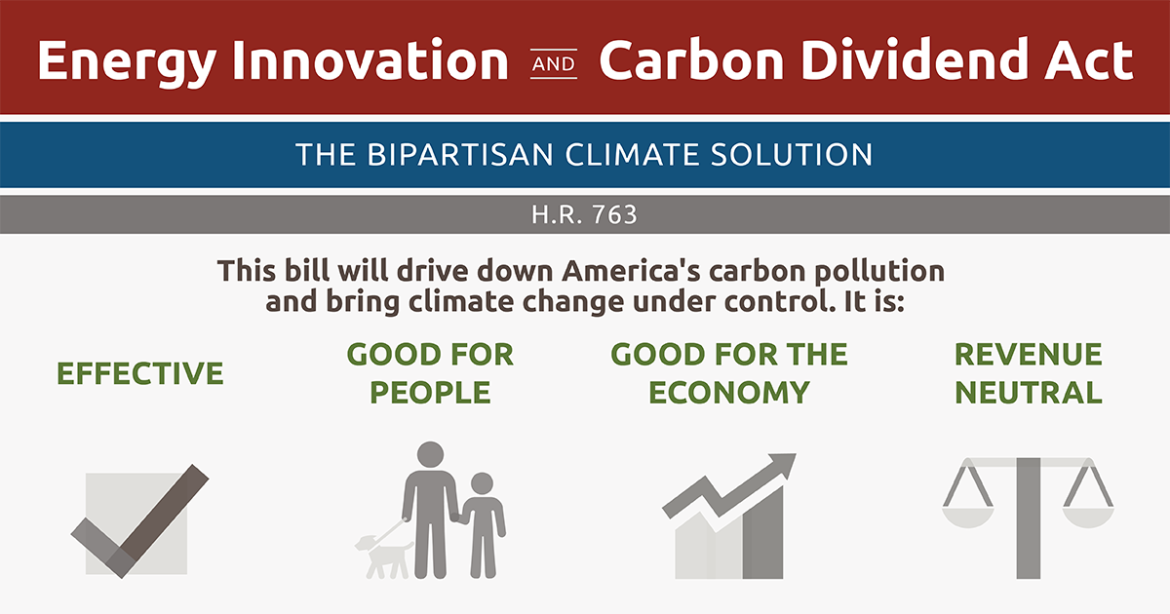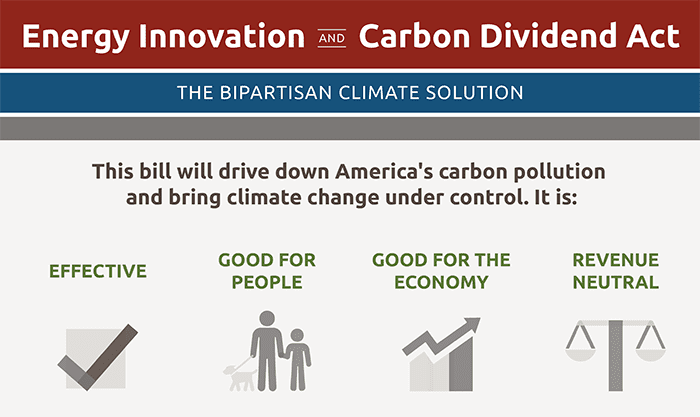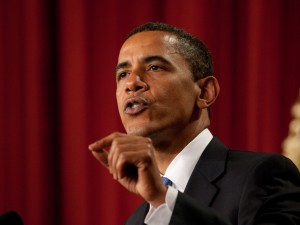
For over a decade, our volunteers have asked their members of Congress to work together on solving climate change. A viable climate change solution needs to be big and lasting—which means bipartisan legislation. We fully support the Energy Innovation and Carbon Dividend Act (H.R. 763). This policy will drive down America’s carbon pollution while unleashing American technology innovation and ingenuity. We support it because it’s:
The Policy is Effective. H.R. 763 will reduce America’s emissions by at least 40% in the first 12 years.
- Good for People. The policy will improve health and save lives. Additionally, the carbon dividend puts money directly into people’s pockets every month to spend as they see fit, helping low and middle income Americans.
- Good for the economy. The policy will create 2.1 million new jobs, thanks to economic growth in local communities across America.
- Bipartisan. Republicans and Democrats are both on board, cosponsoring this bill together. The majority of Americans support Congress taking action on climate change, including more than half of Republicans. Solving climate change is too urgent to get caught up in partisan politics.
- Revenue-Neutral. The fees collected on carbon emissions as a result of the Energy Innovation Act (H.R. 763) will be allocated to all Americans to spend any way they choose. The government will not keep any of the fees collected.
How does it work?
- Carbon Fee. The Energy Innovation and Carbon Dividend Act puts a fee on fossil fuels like coal, oil, and gas. It starts low and grows over time. It will drive down carbon pollution because energy companies, industries, and consumers will move toward cleaner, cheaper options.
- Carbon Dividend. The money collected from the carbon fee is allocated in equal shares every month to the American people to spend as they see fit. Program costs are paid from the fees collected. The government does not keep any of the money from the carbon fee.
- Border Carbon Adjustment. To protect U.S. manufacturers and jobs, imported goods will be assessed a border carbon adjustment, and goods exported from the United States will receive a refund under the policy.
- Regulatory Adjustment. The Energy Innovation Act policy preserves effective current regulations (like auto mileage standards) but pauses the EPA’s authority to regulate the CO2 and equivalent emissions covered by the fee for the first 10 years after the policy is enacted. If emissions targets are not being met after 10 years, Congress gives clear direction to the EPA to regulate those emissions to meet those targets. The pause does not impact EPA regulations related to water quality, air quality, health, or other issues. The policy’s price on carbon pollution will lower carbon emissions far more than existing and pending EPA regulations.
Video: The Energy Innovation and Carbon Dividend Act of 2019
Share Infographic
Spread the word! Share this infographic on social media.
[easy-social-share buttons=”facebook,twitter” counters=0 style=”icon” template=”59″ url=”https://energyinnovationact.org/infographic/” point_type=”simple”]
For more information or to endorse the Energy Innovation and Carbon Dividend Act (H.R. 763) on behalf of an organization, visit www.energyinnovationact.org. To take further action to support this legislation, or to keep in touch on new developments, please join CCL.




